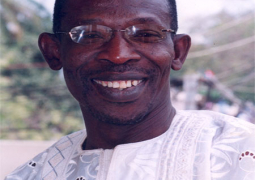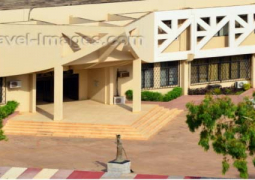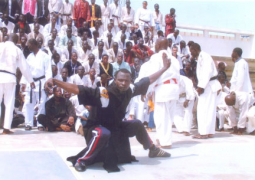Jally
Senghore, a police officer, yesterday testified before magistrate Janneh-Njie
of the Banjul Magistrates’ Court in the case involving Babucarr Njie, a
soldier, who was found with a pistol at the King Fahd Mosque.
The
witness told the court he is a police officer attached to the Major Crime Unit,
and that he recognised the accused person.
On
10 February 2017, he was in his office and the accused was brought before him
for interrogation and to obtain statements from him.
He
called an independent witness, one Fabakary Kinteh, and read the wording to the
accused, and obtained the cautionary and voluntary statements from the accused.
The
independent witness, the accused and himself signed the documents, he further
told the court.
The
cautionary statement was given to him to identify, which he did.
The
police prosecutor, Sub-Inspector Bojang, then applied to tender the statement.
At
this juncture, the defence counsel, Sheriff Kumba Jobe, said they were not
served with the cautionary and voluntary statements, and applied for the
prosecution to supply them with the documents in their custody to prepare their
defence.
Counsel
then applied for a short adjournment.
Magistrate
Janneh-Njie asked the prosecutor to have the documents photocopied; she stood
down the case, and the documents were later photocopied by the defence.
When
the hearing resumed, the defence counsel objected to the tendering of the
statements, stating that they were not obtained voluntarily.
He
urged the court to order a voire dire (trial within a trial) to test the
voluntariness of the statements, citing section 33 of the Evidence Act to
support his argument.
The
presiding magistrate subsequently ordered a voire dire.
Prosecutor
Bojang then applied for an adjournment to call other witnesses, and the defence
did not object.
The
case was then adjourned until 15 March 2017, for the voire dire.
Read Other Articles In Article (Archive)
Four years for burglar
Sep 24, 2010, 12:06 PM




